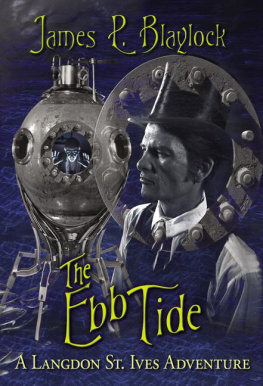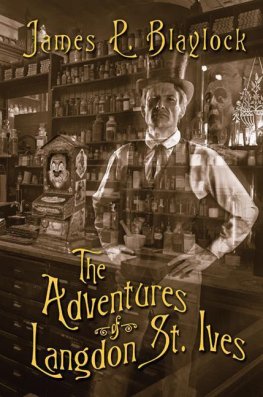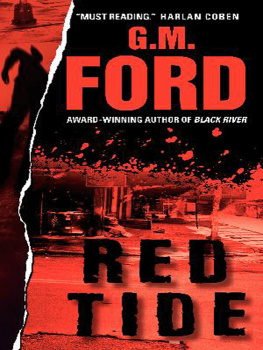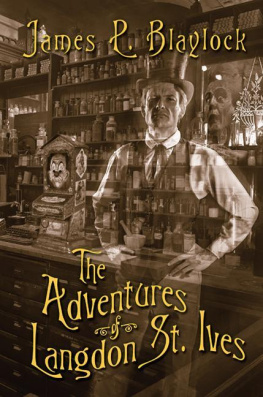James Blaylock - The Ebb Tide
Here you can read online James Blaylock - The Ebb Tide full text of the book (entire story) in english for free. Download pdf and epub, get meaning, cover and reviews about this ebook. year: 2009, publisher: Subterranean, genre: Detective and thriller. Description of the work, (preface) as well as reviews are available. Best literature library LitArk.com created for fans of good reading and offers a wide selection of genres:
Romance novel
Science fiction
Adventure
Detective
Science
History
Home and family
Prose
Art
Politics
Computer
Non-fiction
Religion
Business
Children
Humor
Choose a favorite category and find really read worthwhile books. Enjoy immersion in the world of imagination, feel the emotions of the characters or learn something new for yourself, make an fascinating discovery.
- Book:The Ebb Tide
- Author:
- Publisher:Subterranean
- Genre:
- Year:2009
- Rating:5 / 5
- Favourites:Add to favourites
- Your mark:
- 100
- 1
- 2
- 3
- 4
- 5
The Ebb Tide: summary, description and annotation
We offer to read an annotation, description, summary or preface (depends on what the author of the book "The Ebb Tide" wrote himself). If you haven't found the necessary information about the book — write in the comments, we will try to find it.
The Ebb Tide — read online for free the complete book (whole text) full work
Below is the text of the book, divided by pages. System saving the place of the last page read, allows you to conveniently read the book "The Ebb Tide" online for free, without having to search again every time where you left off. Put a bookmark, and you can go to the page where you finished reading at any time.
Font size:
Interval:
Bookmark:
The Ebb Tide: A Langdon St. Ives Adventure
Copyright 2009 by James P. Blaylock. All rights reserved.
Dust jacket and interior illustrations
Copyright 2009 by J. K. Potter. All rights reserved.
Interior design Copyright 2009 by Desert Isle Design, LLC.
All rights reserved.
Electronic Edition
ISBN
978-1-59606-344-0
Subterranean Press
PO Box 190106
Burton, MI 48519
www.subterraneanpress.com
Table of Contents
Chapter 1
Mertons Rarities
We were at the Half Toad one evening early in the month of a windy MayLangdon St. Ives; Tubby Frobisher, and myself, Jack Owlesbytaking our ease at our customary table. Professor St. Ives, as youre perhaps already aware, is one of Englands most brilliant scientists, and her most intrepid explorer. The Half Toad is an inn that lies in Lambert Court, off Fingal Street in London, frequented by men of science down on their luck: three rooms to let, William and Henrietta Billson proprietors. The inn is difficult to find if you dont know the turning or if you fail to see the upper body of what is commonly called a Surinam toad leaning out of the high window over the door.
The carving of the toad was carried out of Guiana in the mid-century by Billson himself, aboard the old William Rodgers . The nether half of the creature blew to flinders when the powder magazine exploded in the dead of night, sinking the ship and half the crew in a fog off Santo Domingo. Billson found himself afloat and alone with half the toad, and he clung to the remains for close onto a day and a half before fishermen hauled him out nearly drowned. He went straight back to London on a mail packet, only to discover that his old father had died two months earlier and left him something over five hundred a year, and so he counted his many blessings, married his sweetheart, and set up shop in Lambert Court, where he put the heroic toad in the window.
In his seagoing days, Billson had been an amateur naturalist, and had sailed as a young man with Sir Gilbert Blane, popularly known as Lemon Juice Blane, the great anti-scorbutic doctor. Billsons collection of fish and amphibiana was housed in the back of the inn (and still is). It was the mans deep interest in Japanese carp that led to his correspondence with St. Ives in the days following the incident of the break-in at the Bayswater Street Oceanarium in the time of the Homunculus.
St. Ives had recently resolved to keep a room the year round at the Half Toad, despiteor rather because ofits obscure location, so that he had secure digs when he came in from Chingford-by-the-Tower to London proper, which happened often enough. Billson wasnt a man to be trifled with, nor a man to ask questions, both of which attributes suited St. Ives down to the ground. Henrietta Billson, a ruddy-faced, smiling woman, once beat a customer half silly with a potato masher who had put his hands on the girl who makes up the rooms. Her fruit tarts and meat pies would make you weep.
Enough people frequent the Inn to keep Billson busy in front of his fireplace spit long into the evening, and on the night in question he had a joint of beef rotating, done very nearly to a turn, and he was looking at it with a practiced eye, his carving knife ready at hand. Beneath, to catch the drippings, hung a kettle of those small potatoes called Irish apricots by the Welsh, and there wasnt a man among us who didnt have the look of a greedy dog.
This particular May evening at the Half Toad, Ill point out in passing, took place during that lamented period when St. Ives had been forbidden entrance to the Explorers Club because of a minor kitchen mishap involving refined brandy and the head and tentacles of a giant squid. The great mans temporary banishment and subsequent reinstatement will have to be the subject of another account, but in those dark days St. Ives came to appreciate the homely luxury of the Half Toad, and in the years following his reinstatement he visited the Explorers Club but rarely. I should say we, since I was (and am) St. Ivess frequent companion when the great man comes into London.
But as I was saying, I remember that May evening in 82 well enough, for the Phoenix Park murders were being shouted high and low by newsboys out on Fingal Street. That unforgettable joint of beef was turning on the spit, there were kidney pies baking in the oven and puddings boiling in the copper, and, of course, there were those potatoes. The Billsons halfwit kitchen help, a Swede of indeterminate age named Lars Hopeful, was drawing ale from the tap, and all of us, you can be sure, were looking forward to making a long night of it.
I hadnt so much as put the glass to my lips when the door swung open, the street noise momentarily heightened, and we looked up to see who it was coming in with the wind. Surprisingly, it was St. Ivess man Hasbro, who should have been in Chingford tending the home fires, so to speak, and collecting the post. AliceMrs. St. Iveswas in Scarborough with the St. Ives children, little Eddie and his sister Cleo. My own wife, Dorothy, had gone along, the lot of them staying with Alices ancient grandmother, which explains how St. Ives and I had come to be temporarily bachelorized. Hasbro had the air of a man in a hurry (not his usual demeanor) and you can imagine that we were suddenly anxious to hear him out.
Without a word, however, he produced from his coat a recent copy of Mertons Catalogue of Rarities and opened it to a folded page, which he passed across to St. Ives, who read the piece aloud. There was offered for sale a hand-drawn map of a small area of the Morecambe Sands, the location not identified. The map, according to the catalogue copy, was stained with waterweeds, tobacco, and salt rime, was torn, soiled, and ill-drawn as if by a child, was signed with the letter K and the crude, figure-eight drawing of a cuttlefish, and was offered for sale for two pounds six. Of questionable value, Merton had added, but perhaps interesting to the right party.
Merton had found the right party, and had doubtless expected to find it, because he had sent the catalogue out to St. Ives Manor by messenger, not suspecting, of course, that the Professor was already in London. St. Ives stood up abruptly from his chair and uttered the words, Krakens map, or Im a fried whiting. He slid the catalogue into his coat and along with the waiting Hasbro strode toward the door, shouting a hasty good-bye to Billson, who gestured his farewell with the carving knife. Never a potato did I eat, Im sad to say, and the same for Tubby Frobisher, who was fast on my heels, although the man could have had no idea what any of this meant.
Night was falling, and the temperature with it, as if the world had tilted and spring had slid back into winter. Lambert court was deserted aside from a workman in dungarees, who was inordinately tall and sneery, lounging on a pile of excavated dirt and rock with the air of a man having avoided a days work. Twenty minutes earlier there had been two of them, the other squat and with dangling, heavy arms, and the comical contrast between the two had stayed in my mind. Now the tall one was smoking a pipe over the remains of the dayBalkan Sobranie, my own tobacco of choice, and perhaps a little elevated for a workmans pocketbook, something I remarked to Frobisher when the wind blew the reek past us in a cloud. The man gathered himself together and left just as we came out through the door. He disappeared back through the Court with a certain celerity, as if he had an appointment to keep.
Fingal Street, never particularly active, was possessed of an evening quiet. St. Ives hailed a Hansom cab that happened to be passing, and he and Hasbro climbed aboard and whirled away. To Mertons! St. Ives shouted back at us, and Tubby and I were left to follow as best we could. We set out on foot, making our way down toward the Embankment at a fair pace.
Next pageFont size:
Interval:
Bookmark:
Similar books «The Ebb Tide»
Look at similar books to The Ebb Tide. We have selected literature similar in name and meaning in the hope of providing readers with more options to find new, interesting, not yet read works.
Discussion, reviews of the book The Ebb Tide and just readers' own opinions. Leave your comments, write what you think about the work, its meaning or the main characters. Specify what exactly you liked and what you didn't like, and why you think so.











